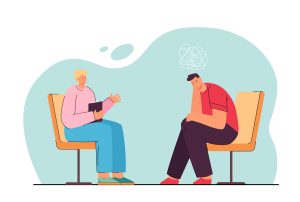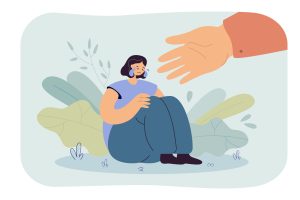
Understanding Anxiety Disorders and How To Manage Them
Anxiety is a common emotion that many of us are familiar with. We may all experience it on certain occasions that may be stressful. This

Anxiety is a common emotion that many of us are familiar with. We may all experience it on certain occasions that may be stressful. This

The decision to take up counseling can be confusing. Choosing the right therapist can be difficult, as there are different forms of therapy available around

Online counseling is a service that addresses mental health issues and is provided via video call, chat, phone, or email. Today, psychological support and counseling

Have you been considering couples counseling, but you are confused about it’s process, and all that it entails? There are a various types of therapy

What are Body Image Difficulties? How many times have you found yourself scrolling through Instagram and feeling like you aren’t good enough? You may feel

There may be difficult times in your life when you feel like things aren’t going your way. No matter how much effort you put in,

Have you ever gotten angry at your parents for not letting you go out with your friends? Or on your friends itself, for not listening

What Does it Mean to ‘Feel’? Our feelings are responsible for making sense of our experiences in life. They help us survive, form and maintain

Our mind is a powerhouse; from helping us make new friends, to getting us ahead in life, our mind does it all. It constantly works

We typically focus a lot on building good relationships with others. We are constantly trying to be ‘good enough’ so we can maintain our relationships

We specialize in combining psychotherapy with deep wellness practices like mindfulness and meditation and creating a customized mental health plan for individuals and organisations.
We specialize in combining psychotherapy with deep wellness practices like mindfulness and meditation and creating a customized mental health plan for individuals and organisations.

A young woman from another country moved with her family to live for one year in a town near the monastery. When, in the course of the year she discovered the monastery, she would periodically visit to have discussions with the Abbess. The Abbess introduced her to meditation, which became very meaningful for the young woman.
When the family’s year-long stay was drawing to an end, the young woman asked the Abbess, “In my country there is no Buddhism and no one has even heard about meditation. How can I continue to learn and deepen the practice you have started me on?”
The Abbess said, “When you return home ask far and wide for who, among the wise people, is recognized as having the greatest ability to listen. Ask that person to instruct you in the art of listening. What you learn about listening from such a person will teach you how to further your meditation practice.
― Gil Fronsdal, A Monastery Within: Tales from the Buddhist Path